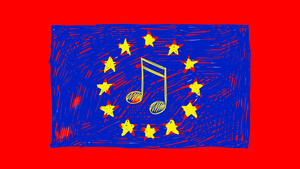The European Union is unlikely to offer a new deal to make it easier for British artists to tour around Europe, because doing so would involve wholesale changes to EU rules. This news will be a blow to the UK’s new Labour government, which included “helping our touring artists” as a key priority as part of a manifesto commitment to tear down “unnecessary barriers to EU trade” prior to this year’s General Election.
According to internal EU briefing documents seen by the Financial Times, EU officials say “such a deal is impossible because it would require rewriting the EU-UK Trade And Cooperation Agreement”, as well as making changes to EU rules on customs, road haulage and services. Changes, says the FT, that the European Commission is “not prepared to consider”.
That said, Paul Adamson from the EU-UK Forum, a group which brings together policymakers, told the newspaper that the UK government might still be able to get some of what it wants if it is willing to make some compromises, adding that European Commission President Ursula von der Leyen is likely to be an ally in that domain. “She sees the bigger picture, the geopolitics”, he added. “She’s anglophile and has intervened before to make compromises to get deals done”.
However, it remains unclear how willing the UK government will be to compromise. UK ministers remain nervous that any big new agreements with the EU will be spun by their political opponents as a reversal of Brexit, resulting in a backlash from voters, including Labour voters, who supported and continue to support the UK’s exit from the EU.
Which means not only is the Labour government officially opposed to rejoining key strands of the EU - such as the single market or customs union - it is also resistant to more modest proposals, such as a proposed scheme that would allow EU citizens under 30 to work and travel in the UK, and UK citizens under 30 to work and travel in the EU. Prime Minister Keir Starmer last week ruled out signing up to any such scheme in the short term.
The big post-Brexit trade agreement between the UK and the EU did not include bespoke measures to make it easy for British performers to tour around Europe, meaning that, since Brexit, there has been new bureaucracy to navigate, including travel permits and carnets, and new restrictions and costs relating to transport and merch sales. The exact requirements performers must meet differ from country to country.
Ever since the trade agreement was signed in December 2020, the music industry has called on the UK government to work with the EU and individual EU member states to remove as many of the new barriers as possible. There have been talks and some improvements, though many of the post-Brexit challenges remain.
There was optimism that the new Labour government, which is keen to forge better relations with the EU and seemed more willing to prioritise getting a better deal for performers, might have more success.
However, EU insiders say that, for the UK to make any progress with its priorities for enhancing EU/UK relations, it will need to embrace some of the proposals coming in the other direction, such as the youth mobility proposal. With Labour currently pushing back on those proposals, and with EU officials already against a deal for performers, securing such a deal may prove challenging when formal discussions begin between the UK and the EU later this year.
However, optimists reckon that both sides are currently taking hardline positions on things to strengthen their negotiating hand down the line, but that there will be much more willingness to compromise once those formal discussions actually begin.

